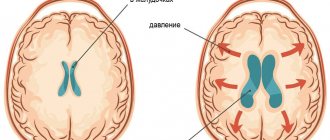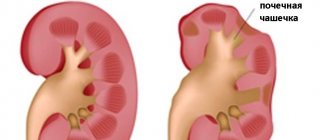Children are sometimes diagnosed with a specific disorder of the autism spectrum. It is characterized by the complexity of social interaction, certain communication disorders, and a unique range of interests. This pathology is called Asperger's syndrome. Doctors make such a diagnosis only after in-depth clinical and then neurological and psychiatric examination.
According to the ICD-10 classification, pathology has a separate category. ICD-11 identifies it as a mental development disorder, similar to autism. Some American experts propose banning this diagnosis altogether, changing it to the definition of “childhood autism spectrum disorder,” adding to it the severity of the disease.
History of the study
The disorder was first studied in depth by the Austrian psychiatrist Hans Asperger, which is why it received its name at the suggestion of Lorna Wing from England in 1981. Back in 1944, a pediatrician described sick children who noticed a lack of inclination for non-verbal communication, very limited emotionality when contacting people around them, and a certain awkwardness in physical exercises.
At the end of the last century, diagnostic standards were developed and introduced into psychological practice. Thanks to them, it was possible to identify children with Asperger's syndrome. This disorder began to be considered a mental disorder, since affected children had difficulties with social interaction, they were found to have a stereotypical repertoire of daily activities and a cycle of repetitive interests.
The diagnosis has been officially removed since 2013 from the American edition of the Diagnostic Manual of Mental Disorders. However, in practice the term continues to be used, although the syndrome has quite common criteria with autism, also listed in the group of autistic disorders.
Getting to know the disease
Asperger's syndrome is a mental disorder characterized primarily by problems of social adaptation and stereotypical behavior, but not accompanied by mental retardation and speech underdevelopment. In some cases, such patients, on the contrary, have a high intellectual level.
The syndrome was first heard of in the mid-20th century, when the Austrian psychiatrist and pediatrician Hans Asperger studied and described four children with problems with social interaction. They had difficulty establishing wordless contact with people, were emotionally stingy and incapable of empathizing with others, and also showed some clumsiness in their movements.
In addition, the symptoms of this disorder also manifested themselves in its discoverer.
The doctor designated the discovered syndrome as autistic psychopathy. He zealously and obsequiously defended his “findings,” saying that people with autistic psychopathy, having gone through great difficulties in childhood, occupy a certain cell in society and contribute to its development. The scientist believed that such patients have a special way of thinking and in the future can achieve significant heights.
In the 1990s, the disorder was given its modern name: Asperger's syndrome. The concept was identified as an independent diagnosis and its main criteria were formulated.
The International Classification of Diseases currently rejects this term. The disorder is coded as “Schizoid disorder of childhood.”
One of the theories of the occurrence of the disease is based on a hereditary factor. It is believed that if a child has sick relatives, especially the father, he has an increased risk of developing the disorder.
It is assumed that even in utero, under the influence of teratogenic, that is, destructive, factors, anomalies and developmental defects form in the fetus. They lead to pathological migration of embryonic cells, causing changes in the structure of the brain. The latter, in turn, disrupt the neural pathways responsible for thinking and behavior.
Differences between Asperger's syndrome and autism
Psychiatrists have not yet come to a clear opinion: whether Asperger's syndrome should be considered a separate diagnostic category that excludes the definition of autism. Both pathologies are autistic disorder. In this situation, some changes in brain structure occur, although their development is still not fully understood.
Common symptoms are difficulties in social interaction, reluctance to contact others, inadequate reaction to generally accepted norms, lack of empathy. However, with the syndrome, such manifestations are less intense, so the child is able to live normally, then start a family, and work successfully.
The next difference is the specific speech in patients with Asperger syndrome. This clearly distinguishes them from children with other pervasive developmental defects. The discoverer of the disease eloquently noted the unusual speech abilities of patients. They include the following aspects: the difficulty of constructing a dialogue, the “melody” of the flow of speech, its early development or delay. At the same time, the pediatrician described that there is a certain tendency for some children to talk “like an adult.” They have a significant vocabulary, and their conversations contain sentences that are quite complex in construction.
Asperger o. Many experts now perceive this deviation as a certain subtype of autism. In general, the opinion of psychiatrists who claim that a child diagnosed with Asperger’s syndrome has a special type of autism is quite realistic. It is also confirmed by the similarity of the manifestations of pathologies.
Symptoms
Asperger's syndrome is a hidden dysfunction because it is almost impossible to detect by visual signs. Children with this disorder have difficulties with communication, imagination, and social adaptation - this is a “triad of disorders” characteristic of this pathology.
Communication
Children with this disorder exhibit the following manifestations:
- poor perception of gestures, intonations, facial expressions of the interlocutor, the tone of his speech;
- frequent use of complex phrases in conversation or written text, although, in fact, the patient is not fully able to understand their meaning;
- difficulties with the moment of starting or ending a conversation, problems in choosing the topic of communication;
- difficulty in perceiving irony, metaphors, sarcasm - such children take everything too literally and seriously.
Imagination
Sick children are characterized by the following symptoms:
- Inability to use imagination when playing games.
- The ability to select only unimportant aspects of those surrounding objects that attracted attention. The impossibility of a holistic understanding of everything that is happening (the child is interested in the earring, while he does not pay any attention to the person who owns this accessory; at the time of the injection, he sees only the syringe, completely ignoring the nurse performing the manipulation).
- Some children have a limited reserve of actions to repeat, but they perform them constantly without trying to make any changes. Their game looks quite complicated from the outside, but if you look closely at it, you can see that it is stereotypical.
- Patients love to watch cartoons or read books on a specific topic, but such interest is constant and very limited.
- There is a lack of understanding of all the actions that require the implementation of complex associations. Because of this, problems arise during social contact, reading fiction, and perceiving subtle humor (patients are only able to understand simple jokes).
Because of all of the above, sick children lack even minimal motivation to participate in general games, although they have the necessary skills for such an activity. Psychiatrists have noticed that patients constantly present repetitive actions, although they can take quite complex forms.
Social interaction
When Asperger's syndrome is identified, children retain social contacts, but significant difficulties often arise when they want to initiate and then maintain new relationships. Children with this disorder:
- find it difficult to create new relationships;
- for them, social contacts are a certain phenomenon that causes anxiety, inexplicable excitement;
- consider outsiders too unpredictable, which is why they try to minimize contacts with them;
- do not perceive generally accepted norms as dogma (they talk about topics that are unacceptable in society, never maintain social distance, getting too close to a stranger);
- They are extremely reserved and give the impression to strangers that they are indifferent to them.
Causes of Asperger's syndrome
Psychiatrists have not yet been able to identify the factors that provoke the problem. Most often, such a mental disorder is caused by some combination of the risks surrounding the child in the social environment and genetic prerequisites. Many studies have confirmed that changes in thinking can be caused by some combination of endogenous as well as exogenous factors.
The most reliable working hypothesis is the autoimmune reaction of the mother's body, which provokes damage to the fetus's brain. Only one thing has been established quite accurately - pathology is only a congenital disorder, it cannot be acquired during life. If Asperger syndrome is detected in an adult, this is only evidence that the disease was not correctly diagnosed at an early age. Pathology cannot appear due to emotional trauma or shortcomings in upbringing.
There is also a widespread theory that the appearance of the disease is influenced by the vaccination procedure. However, modern research is clearly unable to answer this statement. Although the general ambiguity surrounding identifying the exact causes of pathology in a child leaves room for controversy, which is why research on this matter does not stop.
Diagnostics
Our psychiatrists have certain problems in identifying autistic disorders. Some manifestations of pathology can be detected before the child reaches the age of two, but more often the problem is diagnosed only at 4–5 years.
Sick children are characterized by an increased vocabulary, although their speech development is very specific. Due to the timely onset of conversational skills, such symptoms are often perceived as manifestations of other behavioral failures. Usually the presence of this syndrome is determined only by the child’s social adaptation.
A number of signs have been identified that may indicate the presence of such a disorder in a child:
- Increased sensitivity of the senses (heightened sense of smell, exquisite taste, unnatural tactile touch, unusual reaction to loud sounds).
- Insufficient visual interaction.
- Weakened verbal or nonverbal communication skills.
- A certain awkwardness in movements, some clumsiness when walking, performing some actions.
- Although the speech is correct, from the point of view of grammar, it has a slow or accelerated pace and is pronounced with an unnatural timbre.
- Stereotypical behavior. Frequent repetition of certain activities is typical. The child regularly plays with one object and watches one TV show all the time.
- There are noticeable difficulties in those games where you need to impersonate someone, pretend somehow.
- There is a complete lack of social adaptation, so there are practically no friends.
- Particular passion for a particular activity. Often a childhood hobby lasts for the rest of their lives.
- The desire for a certain order. The child often insists that the route to kindergarten or school should follow one route. Even minor changes in the lesson schedule cause severe frustration.
All such manifestations are quite capable of being noticed by both teachers and parents, but the final diagnosis must be made by a psychiatrist specializing in working with children or adolescents. In diagnostic activities, observations of children, questionnaires, and neuropsychological testing are actively used.
Forecast
In 40%³ of children with Asperger's syndrome, its manifestations soften as they grow older, but problems in communication, sensory sensitivity, and the desire to concentrate on an object of interest may persist.
Psychosocial support is very important for a child with Asperger's syndrome. Sessions with a psychologist can alleviate the symptoms of the disease. Photo: photographee.eu / Depositphotos
If symptoms do not improve as the person gets older, the diagnosis is changed to "schizoid personality disorder", but in fact the person continues to suffer from Asperger's syndrome³. Most often, adaptation results are average. The person becomes more or less independent, but he retains a number of personal characteristics associated with the disease. In many cases, all problems associated with communication, behavior and interaction in society persist to a certain extent throughout life. Symptoms may change over time. Against the background of the underlying disease, other disorders or diseases may appear, including alcohol addiction and depression.
With good adaptation, a person with Asperger syndrome can be very successful in their chosen profession, they can start a family, be completely independent and experience almost no noticeable difficulties in social interaction.
Treatment for Asperger's Syndrome
Similar to the therapy for autism, for this pathology, corrective measures also seek to mitigate the characteristic symptoms that worsen the quality of life. The goal is to improve social functioning. The important thing here is that there is no specific cure for the pathology, no specific treatment has been invented. Drug therapy is acceptable, but only to relieve some symptoms.
In addition to prescribing medications, therapy consists of the following actions:
- developing social skills that help improve interaction with others;
- Exercise therapy helps improve motor coordination, sensory integration;
- Speech therapist helps improve communication skills;
- Cognitive behavioral treatment improves the ability to cope with stressful situations and helps overcome fear and explosive emotions.
There is no way to completely eliminate such a disorder, so every child who is diagnosed with this will become an adult with Asperger's syndrome. Communication and social problems will remain, although they will not be severe. Most people with the syndrome achieve some success in their working lives, create families without any problems, and integrate fully into society.
Clinical picture of the syndrome
The first mental abnormalities begin to appear in a child at an early age, since the child’s psyche is characterized by immaturity and lability. There is no single symptomatology that can accurately confirm the syndrome. Each child or adult may have a different clinic, which should be assessed exclusively by professionals. The psychiatrist at our Respect clinic correctly assesses mental health and, with maximum accuracy, establishes a diagnosis and assigns it to a specific type, predicting sudden or gradual Asperger syndrome, warning the patient about the consequences of the disease.
However, despite the absence of uniform symptoms, three main areas of disturbance are used to group them. Some patients tend to have a predominance of one of them, while others have a predominance of several at the same time.
Problems with social communication in the syndrome
Such patients have difficulty expressing themselves socially and emotionally. It is difficult for them to communicate and establish friendly relationships with other people. They do not need support; they are ready to completely abandon external contacts. As Asperger's disease progresses, it can lead to significant limitations in daily life.
- Problematic understanding of gestures, facial expressions, facial expressions or intonation of the interlocutor.
- It is difficult for them to understand when it is better to start or end a conversation, as well as to choose the usual topic of dialogue.
- They easily use complex phrases, words and terms, but are poor in understanding their meaning (they are not fully aware or do not understand at all).
- They practically do not understand humor, jokes, anecdotes and sarcastic statements. They take everything literally and, often, personally.
In order to find common ground with the patient, a person must be concise and clear. Only under such conditions the patient does not experience difficulties, and communication can end on a positive note.
Imagination
Many people with Asperger's syndrome exhibit creative thinking. They often choose professions and occupations that provide the opportunity to put this into practice (for example, musician, writer, artist, etc.). At the same time, they have many problems with social imagination. This manifests itself in the following situations:
- Presentation of alternative events and prediction (assumption) of further outcomes.
- Awareness and representation of an outside point of view.
- Interpretation of thoughts, feelings (does not refer to emotional indifference or coldness). They do not understand hints and do not notice messages that can be conveyed through body movements.
- Creativity is limited and often repetitive because stability and clarity are important to them.
A similar behavioral model of Asperger's syndrome is clearly manifested in the attitude of such children to games characterized by parodies, multiple personalities and the need to pretend to be someone. The baby will give preference to entertainment for which he is ready. Their subject is logic and consistency, characteristic of mathematical calculations.
Limited social impact
Most patients try to maintain contact with other people. But they have difficulty initiating and maintaining relationships, which can trigger severe anxiety and agitation. They:
- It is with great difficulty that they find friends and remain friends for many years.
- They do not perceive some small unwritten norms of society, which are generally followed by society without thinking. For example, they may unusually violate personal space and get close to a stranger or mistakenly initiate inappropriate dialogue.
- They consider others to be unpredictable, and the syndrome often leaves them confused.
- They withdraw into themselves and give the impression of indifference and indifference. They seem to be social phobics and those who prefer to lead a reclusive lifestyle. Increased attention depresses them.
- They do things or say things that may be inappropriate.
Other characteristic symptoms
Asperger's syndrome is a versatile pathology, the diagnosis of which requires excellent professional training of doctors. This is what distinguishes our clinic, which not only monitors patients, but also helps them gain certain knowledge and adapt to society. The problem is studied and the use of various effective methods of treatment is analyzed.
In addition to the above distinctive features of the clinical picture, the following behavior changes (one or more) are possible:
- Love of a certain order. Patients try to deal with the disorder and confusion of the world, so they establish their own orders that meet their requirements. For example, a child may insist that the road to school be along a single route, without any changes. Sudden class cancellations or schedule adjustments upset them. Almost any of its actions is carried out according to a certain schedule or patterns. This is clearly visible in work: if a person works at specific hours, then being late or delayed at the workplace causes anxiety and excitement.
- High level of passion. They make every effort to implement any business or hobby. Sometimes this develops into a strong obsession, which is especially noticeable when collecting something. For some, this hobby remains throughout their lives, while others periodically become interested in a new activity. For example, if a person is interested in trains, then he focuses on studying information that is devoted exclusively to this topic. It can use various sources: books, films, the Internet and much more. With good incentive, his skill development can reach the point where he can work or study surrounded by his favorite interests.
- Sensory disorders. They manifest themselves in both single and several types of sensations. The degree of their severity depends on individual characteristics and, accordingly, can manifest themselves in different ways. In most cases, there is a sensitivity disorder (increased feelings or, on the contrary, their decrease). For example, even a not very intrusive light, smell or sound can become a problem that causes anxiety. In addition, it becomes difficult for them to move between rooms, avoid obstacles in the way, keep a certain distance from another person, and perform tasks that require the use of fine motor skills. This occurs due to a violation of the perception of one's own body.










